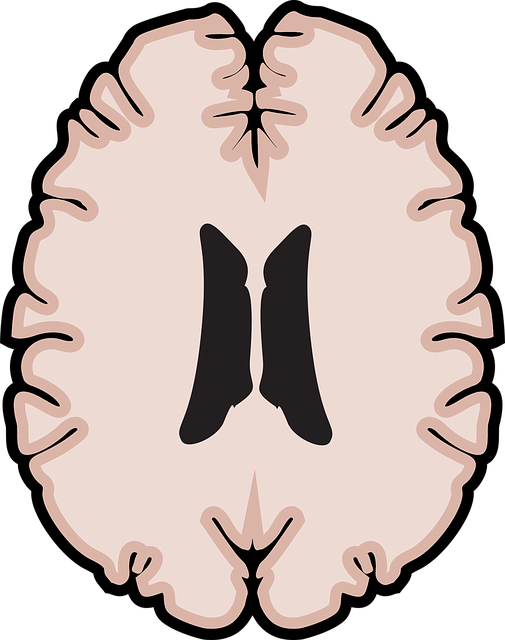Community outreach programs focusing on spiritual and religious aspects alongside mental wellness serve as critical safety nets for children facing challenges in underserved communities. These initiatives, built around Mind Over Matter principles, provide therapy by fostering resilience and emotional intelligence through workshops, mindfulness exercises, art therapy, storytelling, and group discussions. By addressing spiritual-religious needs and dispelling myths through well-structured coaching programs and campaigns, these efforts strengthen social fabric, encourage open conversations about mental health, and ultimately benefit both individual children and society as a whole.
Community outreach programs play a vital role in enhancing children’s well-being by addressing their spiritual-religious needs. This article delves into the implementation of such programs, exploring key aspects from understanding community outreach’s benefits to designing effective strategies and evaluating success. We discuss how sensory-religious issues can be tackled sensitively, emphasizing the importance of therapy for children within these initiatives. By providing guidance through each stage, this resource aims to empower organizations in creating impactful and sustainable change.
- Understanding Community Outreach: Its Role and Benefits for Children's Well-being
- Identifying Spiritual-Religious Needs in the Community: A Sensitive Approach
- Designing Effective Programs: Strategies and Activities to Engage and Support Children
- Implementation and Evaluation: Measuring Success and Continuous Improvement
Understanding Community Outreach: Its Role and Benefits for Children's Well-being

Community outreach programs play a pivotal role in enhancing children’s well-being by addressing their spiritual and religious needs, alongside their mental wellness. In many communities, especially those with limited access to resources, these initiatives act as a safety net, providing therapy for children grappling with various challenges. By integrating Mind Over Matter principles, such programs foster resilience and emotional intelligence in young minds, equipping them to navigate life’s complexities.
Beyond individual benefits, community outreach strengthens the social fabric by increasing public awareness about spiritual-religious issues affecting children. Well-designed Mental Wellness Coaching Programs and Public Awareness Campaigns Development can dispel myths, reduce stigma, and encourage open conversations about mental health. This collective effort not only improves children’s lives but also paves the way for a more compassionate and supportive society.
Identifying Spiritual-Religious Needs in the Community: A Sensitive Approach

Identifying spiritual-religious needs within a community requires a nuanced and sensitive approach. Many individuals seek therapy for children with spiritual-religious issues as a means to address underlying emotional and psychological challenges. Community outreach programs play a vital role in this process by facilitating open dialogues about faith, beliefs, and practices. This is particularly important given the diverse religious makeup of communities today.
Through crisis intervention guidance and resilience-building strategies, these programs can foster empathy-building among participants. By acknowledging and respecting different spiritual perspectives, community leaders can create safe spaces for individuals to process their experiences, cultivate coping mechanisms, and enhance overall well-being. This holistic approach not only addresses immediate concerns but also contributes to the long-term mental health and social cohesion of the community.
Designing Effective Programs: Strategies and Activities to Engage and Support Children

Designing effective community outreach programs to engage and support children requires a multifaceted approach. Incorporating activities that cater to both their physical and emotional needs is essential. One powerful strategy is integrating Mind Over Matter principles, which teach children coping mechanisms and resilience in dealing with various challenges, including spiritual-religious issues. These programs can include workshops on stress management, mindfulness exercises, and art therapy sessions designed to promote mental wellness and emotional healing processes.
Moreover, leveraging storytelling, group discussions, and interactive games can create a safe space for children to express their feelings and connect with peers. Therapy for children should not be limited to clinical settings; community outreach programs can provide a platform for open conversations about mental health, fostering an environment where young individuals feel understood and supported. By combining these strategies, the programs can effectively address emerging issues while enhancing overall emotional well-being.
Implementation and Evaluation: Measuring Success and Continuous Improvement

Implementing community outreach programs aimed at addressing spiritual-religious issues and providing therapy for children involves a structured approach to ensure success and foster continuous improvement. The initial phase includes needs assessment, where stakeholders identify specific gaps in mental health services within the community. This is crucial in tailoring interventions to address pressing concerns, such as lack of access to trauma support services or limited opportunities for self-care routine development for better mental health.
Evaluation plays a pivotal role in measuring the impact and effectiveness of these programs. By incorporating metrics that assess emotional intelligence and track improvements in children’s overall well-being, stakeholders can gauge success and identify areas needing refinement. Regular feedback from participants and community leaders provides valuable insights, enabling program coordinators to adapt strategies for optimal results. This iterative process ensures that outreach initiatives remain relevant, impactful, and aligned with the evolving needs of the community.
Community outreach programs, by addressing spiritual-religious needs and implementing engaging activities, can significantly enhance children’s well-being. As discussed in this article, understanding the local context is key to designing effective interventions that foster growth and development. Through sensitive navigation of diverse beliefs, these programs provide essential therapy for children facing spiritual-religious issues. Continuous evaluation ensures improvements, allowing us to create a more supportive and inclusive environment for all children within our communities.














